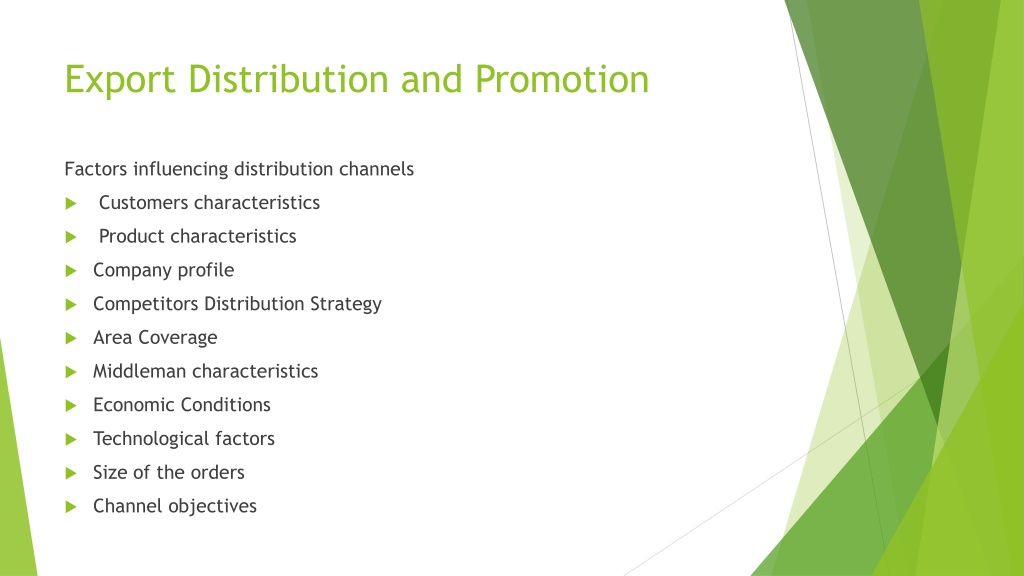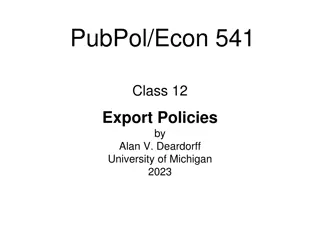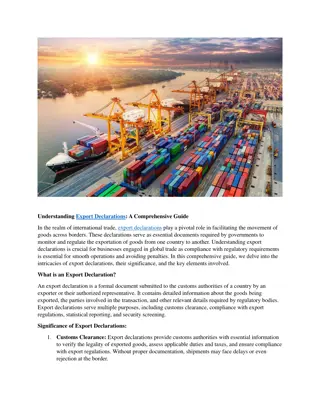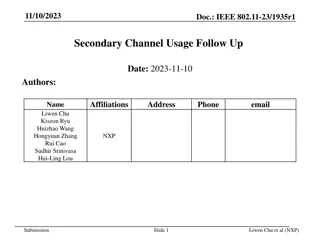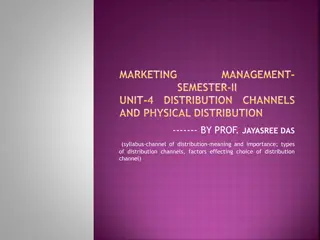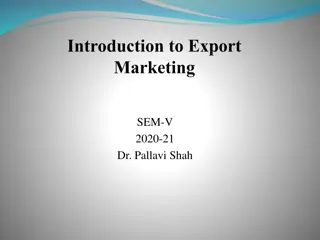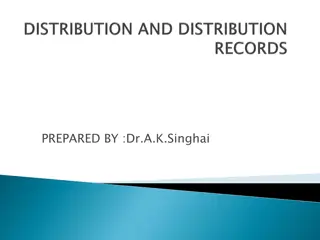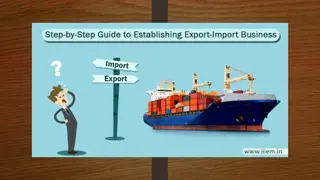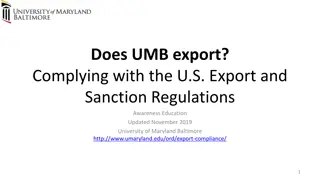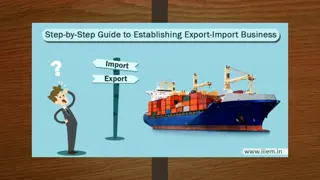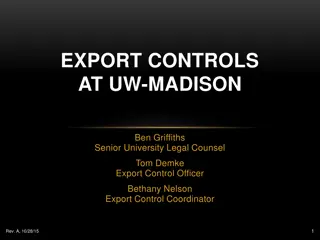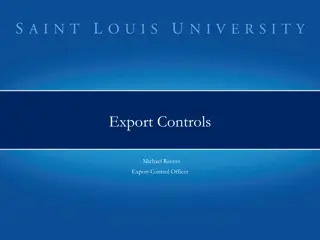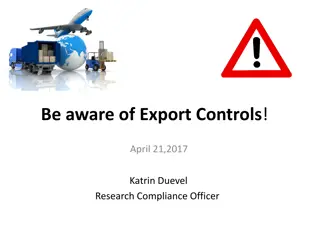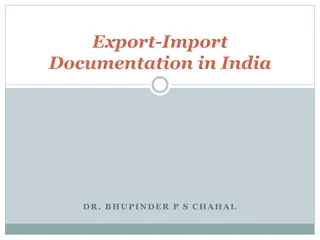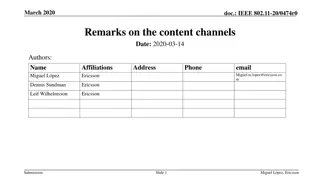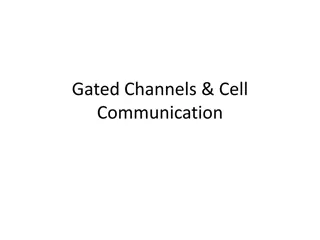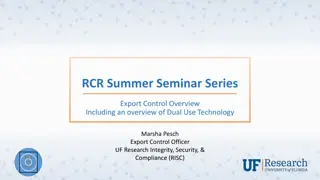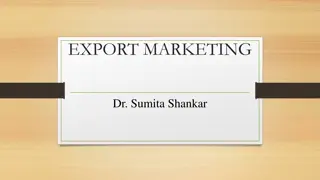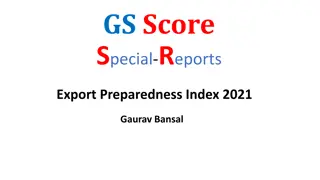Understanding Export Distribution Channels and Factors
Explore the complex world of export distribution channels, comparing direct and indirect exporting methods, logistics components, selection criteria for transport modes, and the importance of insurance in international trade. Learn about the advantages and disadvantages of different distribution strategies, including direct exporting and indirect marketing, and delve into the crucial factors influencing channel objectives and coverage area. Discover the critical role of intermediaries like merchant exporters, state corporations, and overseas sales agents in the indirect export channels. Gain insights into the significance of economic conditions, technological factors, customer characteristics, and product profiles in shaping successful export strategies.
Download Presentation

Please find below an Image/Link to download the presentation.
The content on the website is provided AS IS for your information and personal use only. It may not be sold, licensed, or shared on other websites without obtaining consent from the author. Download presentation by click this link. If you encounter any issues during the download, it is possible that the publisher has removed the file from their server.
E N D
Presentation Transcript
Export Distribution and Promotion Factors influencing distribution channels Customers characteristics Product characteristics Company profile Competitors Distribution Strategy Area Coverage Middleman characteristics Economic Conditions Technological factors Size of the orders Channel objectives
Direct Exporting ADVANTAGES: Reputation Optimum production capacity Spreading of Risk Export obligation Direct Control Export incentives DISADVANTAGES Higher risk More investment Lack specialization High overheads Problem for small manufactures Less economics of distribution
Indirect Marketing Advantages Less risk Less investment Specialisation Suitable for small firms Technical guidance Less overhead Disadvantage Lower profiles Less export incentive Lack of positive support from intermediaries Second hand information Lack of control Lower sales
Indirect exporting channels Merchant Exporter Canalising agencies State corporations Export consortium Overseas sales agents Status holders (Star Export House)
Direct Exporting Vs Indirect Exporting Important question
Logistics Components: Facility Location Information Customer Service Standards Customer Order Processing Warehousing Transportation Material Handling Inventory Management Logistical Packaging
Selection Criteria For Modes Of Transport Logistical Feasibility Stowage Of The Cargo Value Of Goods Shipping Quantity Perishability Of Cargo Urgency Of The Buyer Risk Factor Cost Of The Port Terminals
Need For Insurance Protects Against Commercial Risks Protects Against Credit Risk Protects Against Loss Due To General Average Principle Contractual Requirement To Reduce The Time For Recovery Of Loss Protects Against Political Risk To Avoid Blocking Of Working Capital
Sales Promotion Techniques i. Customer Orientated Promotion Combo Pack Discount Exchange Offer Free Sample Gifts Warranty Premium Offers Order Coupon Personality Promotion Installments
Sales Promotion Techniques Trade Oriented Promotion ii. Cash And Trade Discount Credit Terms Cooperative Advertising Stock Returns Special Incentives Dealer conference Trophies
Sales Promotion Techniques Sales Force Incentives iii. Performance Oriented Reward Suggestion Incentives
Importance Of TFE Creating Awareness Developing Attitude Demonstration Of The Product Brand Image Corporate Image Developing Trust Of Customer List Of Prospective Customer Competitive Advantage Expansion Of Market Educating Customer
Benefits Of Personal Selling Identification Of Prospective Buyer Persuasion Of Customer Increase In Sales Increase In Market Share Corporate Image Customer Satisfaction Customer Loyalty Competitive Advantages Handling Objective Dealers Relationship
Essentials Of Advertising Target Audience Objective Of Advertising Media Of Advertising Language Selection Of Brand Ambassador Selection Of AD Agency Cultural Consideration Education Advertising Agent
